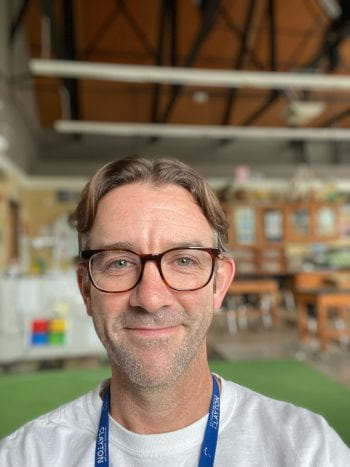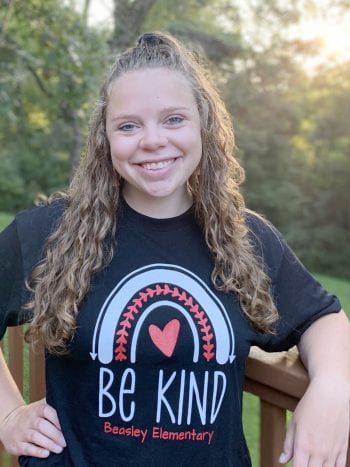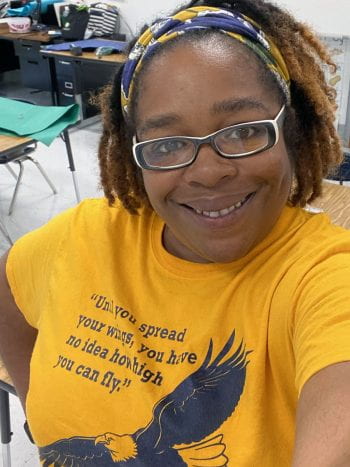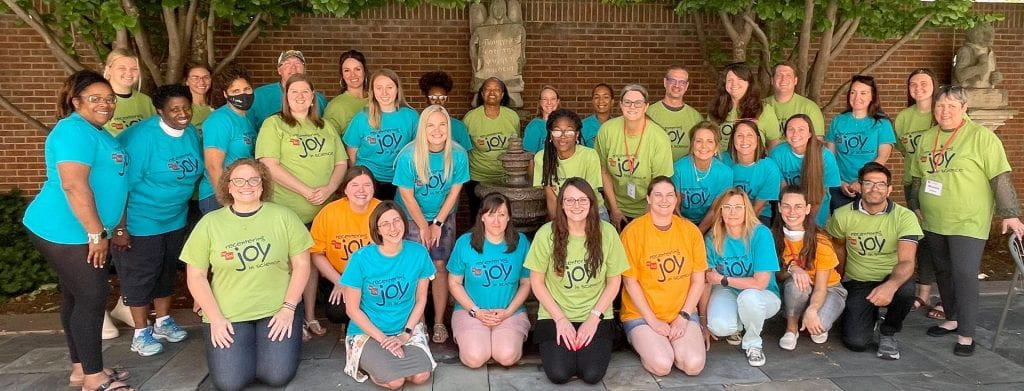Roughly 22 years into his career, Brendan Kearney knows one thing for certain: teaching science is his jam.
“I’ve always loved science, and teaching the subject ignited my passion,” says Kearney, who teaches science – and only science – to third, fourth and fifth graders at Glenridge Elementary in Clayton. For the next school year, he and his students will engage in hands-on science learning with help from mySci.
Launched in 2005 and developed by the Institute for School Partnership at Washington University in St. Louis (ISP) and local teacher leaders, mySci aims to inspire the next generation of scientific thinkers by engaging K-8 students in science, technology, engineering and math (STEM) through interactive learning experiences and creative, standards-aligned curriculum.
mySci classrooms receive big, red kits neatly packed with everything a teacher needs for a given unit of instruction. All mySci units are aligned with the Next Generation Science Standards (NGSS), Missouri Learning Standards and Common Core math and literacy standards. In short, mySci makes planning and teaching science a lot less stressful for teachers, delivering over 13,000 kits to 245 schools across the St. Louis region each school year.
“With mySci as a resource, teachers are more inclined to present the kinds of hands-on activities that are engaging for students,” says Kearney.

He was among 60+ area teachers gathering on the Danforth Campus at Washington University for mySci Summer Institutes, a professional development opportunity designed for teachers new to mySci, as well as mySci veterans. Somewhat familiar with the mySci from piloting it for younger grades at Glenridge, Kearney fell somewhere in the middle.
“This session helped me dig deeply into what matters most, think about the local needs of my school and consider how to use best practices to meet those specific needs,” he says. “Some students might have more background knowledge of a unit than others, so it’s important to level the playing field by giving as much emphasis on what students can observe as to what they already know. I’m leaning more into encouraging students to be the drivers of their own learning, and giving them a voice and choice.”
That takeaway is music to Heather Milo’s ears. An instructional specialist with ISP, Milo is part of a team that oversees many aspects of mySci, including ongoing curriculum and professional development.
“One of the most common questions we get from teachers is how to adapt mySci to meet different purposes and how to identify the most essential parts of the lessons,” says Milo. “mySci professional learning makes sure teachers are connected to the standards and to the students in front of them.”
Teachers helping teachers
Brianna Buss was first exposed to mySci while student teaching in the Mehlville School District, where she was later hired to teach first grade at Beasley Elementary. She was just settling into her first year when Covid-19 threw the new teacher a curveball that was best solved by watching and learning from other teachers.

“I’ve wanted to be a teacher since I was five. My mom taught Kindergarten, so I was very influenced growing up by watching her,” she says. “The mySci Summer Institute was a great way to see how other teachers are doing things differently, which helped me see some new ways I can do even better for my students. It was also really good to see that the mySci curriculum and resources can be adapted to meet differing needs. Fidelity and adaptability can happen in the same space.”
“I had a great team of first grade teachers, other fellow virtual teachers, tech staff and support staff to lean on and learn from when we were doing everything virtually,” says Buss. After 13 months of virtual teaching, she was back in the classroom for a full year of connecting with students in-person, an experience that had a first-year feel to it. As she plans for a fourth year, she’s just as excited to be working with first graders, and recognizes how much she can learn by connecting with peers in the field.
Comfortably uncomfortable
LaWesha Bush was among a handful of teachers who attended both sessions of the mySci Summer Institutes.
“I wanted to refresh my memory about the resource and also come out with something new that would help me,” says Bush, a second grade teacher at Arrowpoint Elementary in the Hazelwood School District. “I really wanted to dive into the standards, to elevate myself professionally. There were a lot of aha moments for me this time around.”

Bush, a certified teacher for six years, with added experience as a classroom substitute and paraprofessional, also welcomes the opportunity to learn from other teachers.
“Seeing how other teachers do things differently makes me comfortably uncomfortable,” says Bush. “Watching a peer I met at one of these mySci sessions come at a lesson so differently, I said, ‘I’m going to watch her for a minute.’ She taught me a new way to dive more deeply into the lesson.”
For Bush, maintaining a lifelong learning mindset is key for teachers, especially when working with second graders, who feel even more empowered when they can teach an adult something, like the names of dinosaurs.
“As a teacher, there are still a lot of things I don’t know, but I don’t need to be that giant teacher who knows all,” says Bush. “mySci takes away a lot of that stress, and it’s great for engaging not only students, but teachers. I appreciate that.”
For the mySci team, that’s the goal.
“We respect teachers,” adds Heather Milo. “When we give them the time and space to think about what matters most and help them identify ways to use mySci to meet the local needs of their students and communities, it gives them some critical decision-making power that’s vital. That’s equity.”
